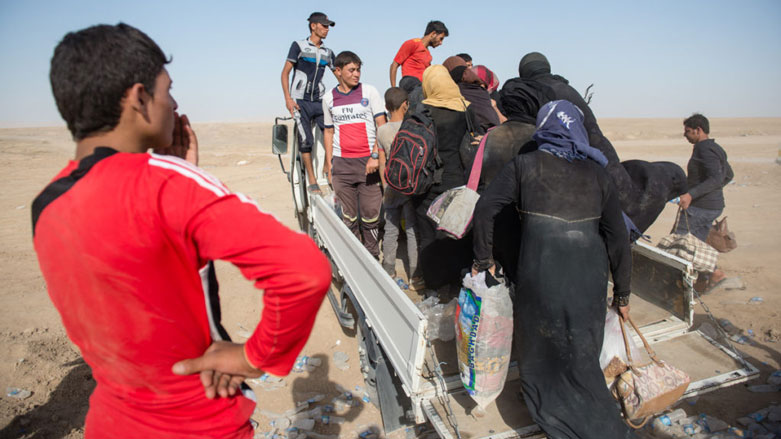Iraqi PM: IDPs fleeing from Mosul larger than expected

ERBIL, Kurdistan Region (Kurdistan24) – The number of Internally Displaced Persons (IDPs) fleeing from Mosul since the beginning of the operation was beyond our expectations, said the Prime Minister of Iraq Haider al-Abadi on Tuesday.
In a press conference, Abadi revealed the number of civilians escaping from Mosul was higher than expected, after a week since the start of the offensive.
Additionally, he mentioned their situation was good, and they have been cared for.
Before the launch of the Mosul offensive on Oct. 17, the federal government, the United Nations, and international organizations made accommodations to receive new IDPs from the city by preparing camps in various locations around the area.
Abadi also stated the Iraqi security forces had repelled “many substantial terrorist attacks” aimed at targeting different parts of the country.
The Prime Minister noted the purpose of the current Islamic State (IS) attacks on Kirkuk Province and Rutbah in Anbar Province were to create instability for security forces participating in the Mosul military operation.
“We have to stay vigilant against the terrorist activities of [IS] that aim to spread media propaganda to hide its defeats on the front lines,” Abadi added.
During the presser, he explained Baghdad had no hostility toward Ankara and did not want to have tensions with Turkey, but would not let the country invade Iraq.
The relations between Baghdad and Ankara have shaken lately after the deployment of Turkish troops training Iraqi Sunni militants against IS in northern Mosul.
The federal government of Iraq has repeatedly asked Turkey to withdraw its forces in the north of the country, but Turkey refuses to do so.
Abadi called Turkey to re-activate its relations with Iraq, claiming both sides have strong ties in terms of economy, trade, security, and military training.
Moreover, he thanked Ankara for providing medical treatment to the wounded Iraqi soldiers in the fight against the jihadist group.
Editing by Karzan Sulaivany
